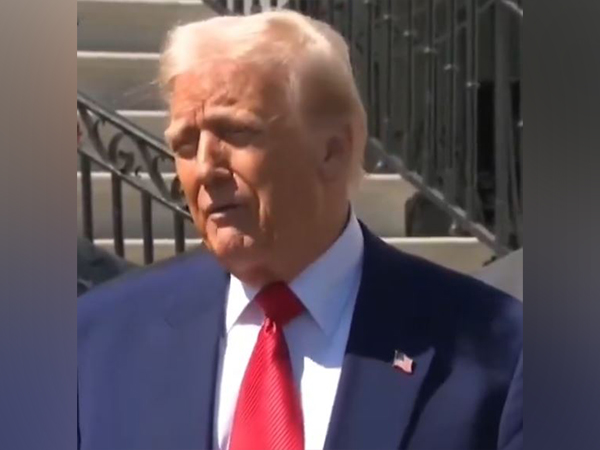China's already beleaguered position on LAC presents India with opportunities: Report
May 23, 2020

Amsterdam [Netherlands], May 23 : Beijing's escalating confrontations with the U.S. and other Western countries amid Covid-19 outbreak, the Taiwan and Hong Kong underbellies, the South China Sea issue and standoff with India over the border issue has put China on beleaguered position. However, it has presented India with opportunities, says Amsterdam based European Foundation for South Asian Studies (EFSAS).
It said in its research, "India, in recent years, appears to have woken up to the need for improving military deterrence along the Line of Actual Control (LAC) in order to counter provocative activities by China at the border. China, whether it is justified in doing so or not, will make every effort to thwart or stall the progress of such building up of deterrence by India. India, however, would do well to not fall into the Chinese trap by slowing down its pace of infrastructure development, troop and weapons build-up, and intensified patrolling, for fear of skirmishes breaking out".
"India will also benefit from keeping in sharp focus the fact that China has erred tactically by opening up too many fronts for it to meaningfully tackle", EFSAS said.
Indian and Chinese troops have been involved in as many as four unsavoury incidents in recent weeks alone. Troops from the two countries clashed and came to blows on 5 May near the Pangong Tso Lake that falls partly in eastern Ladakh and partly in Tibet.
A similar incident occurred on May 9 in Naku La in North Sikkim.
Separately, the Chinese State-run media claimed on 19 May that the People's Liberation Army (PLA) was "tightening control" by putting up tents in one of the flashpoints in Galwan Valley after it accused India of "unilaterally" changing the status quo by "illegal construction". A build-up was also reported in Demchok.
Several views have been put forth regarding the reasons behind China's aggressive posturing on the LAC at a time when the country faces possibly an even more challenging diplomatic and economic environment than it did after the Tiananmen Square crackdown in 1989.
On China's aggressive conduct at the LAC with India, Alice Wells, the head of the US State Department's South and Central Asia bureau, was severely critical of China. She said last week, "The flare-ups on the border, I think, are a reminder that Chinese aggression is not always just rhetorical. And so whether it's in the South China Sea or whether it's along the border with India, we continue to see provocations and disturbing behaviour by China that raises questions about how China seeks to use its growing power".
Some analysts also believe that Chinese belligerence at the border has coincided with India's turn to assume a leadership role at the World Health Organisation (WHO) by taking over as the chair of the WHO Executive Board on May 22.
As the head of the board, India's nominee will have considerable weight in decisions impacting China such as the opening of a probe into the origins of the novel coronavirus pandemic and Taiwan's participation in future sessions of the World Health Assembly.
With the current global crisis emerging due to Covid-19, the United States (US), Australia, several European Union (EU) members, and a host of other nations have called for China to be held accountable for the pandemic.
Even European leaders are frustrated at the way Beijing has handled the coronavirus crisis.
China's unleashing of its "wolf warrior" ambassadors with messaging of China's strength and Europe's weakness amid the pandemic were viewed as particularly distasteful in Europe.
"Over these months China has lost Europe," Reinhard Buetikofer, chairperson of the European Parliament's delegation for relations with China, said last month.
EFSAS said, "This should give India valuable time and space to consolidate, which it needs to capitalise fully upon."



















